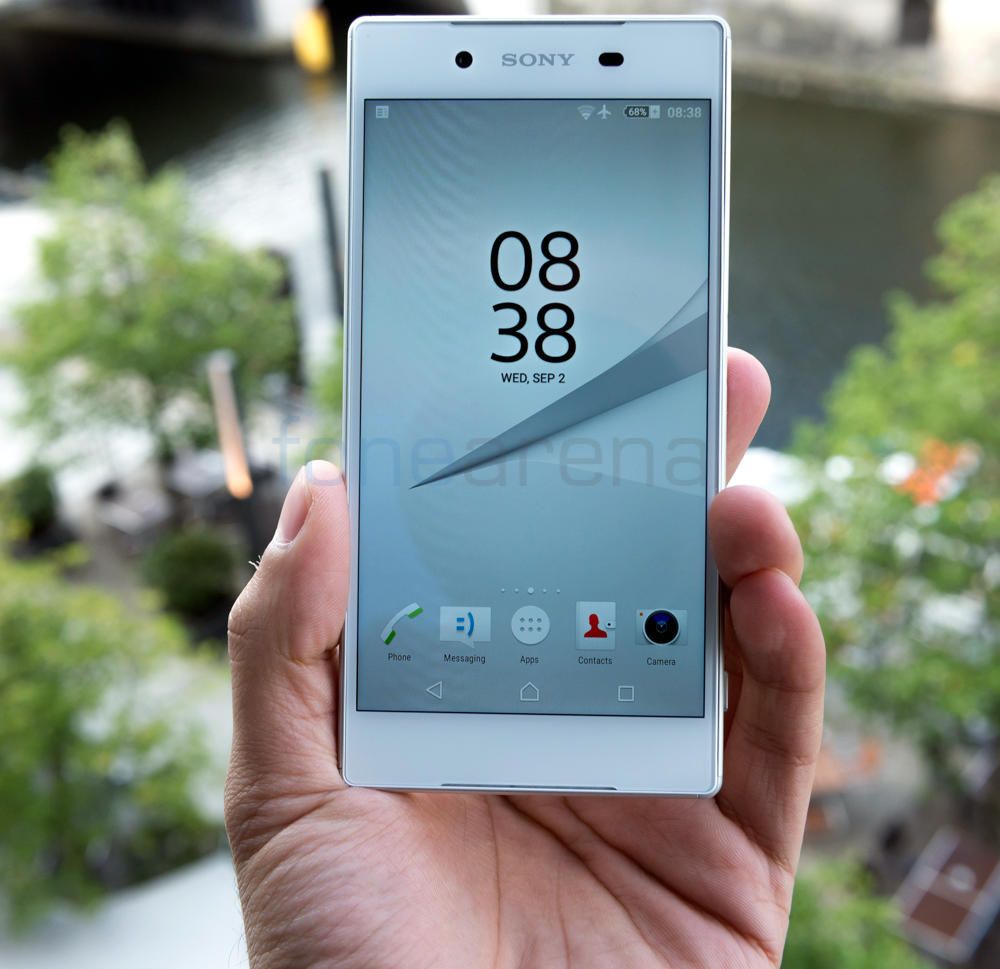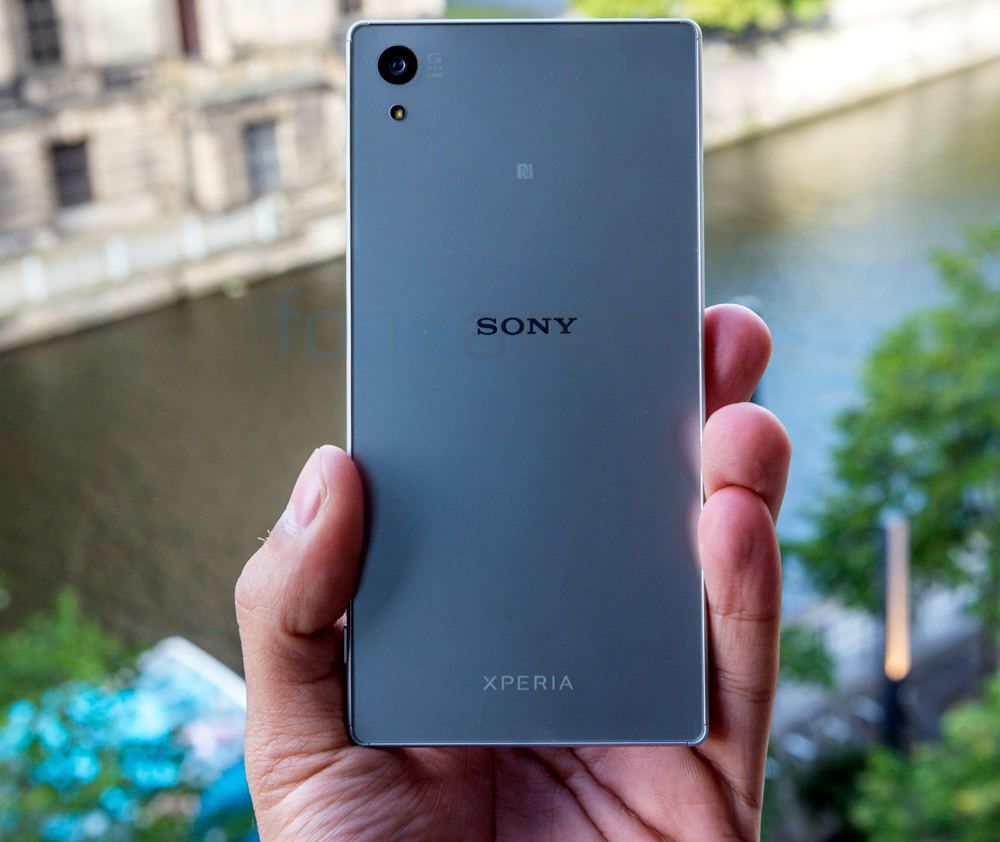

Sony announced the three new handsets under the XPERIA Z5 lineup here in Berlin prior to IFA. We went hands on with the XPERIA Z5 smartphone which is the successor to the Z3+/Z4 and here are our impressions of the device.
httpv://www.youtube.com/watch?v=7LKYDlXeF54
The XPERIA Z5 like every other XPERIA device has a design that is unmistakably Sony’s. The smartphone looks very similar to the Z3+/Z4 especially from the front and the back. There are a few changes primarily to the sides of the device.


For starters, the device is now thicker than before and also has a softer matte touch to it that improves grip. It is also noticeably heavier. Like the Z3+/Z4, the Z5 also drops the protective cover for the microUSB port which is at the bottom while still managing to maintain the water resistant properties of the device.
The display remains the same 5.2″ 1080p display and you also have the twin speaker setup above and below the display. The display is however brighter than previous generations and also seems to have more vivid colours. The screen is however still quite reflective and that does impact sunlight legibility.
Above the display, you have the new 5 Megapixel front facing camera, the Sony logo as well as the ambient light and proximity sensors.
The left side now houses the microSD card slot and the nano SIM slot under a protective flap. There is also a nice embossed XPERIA logo on the bottom left.
At the right side, you have the new power/lock key that has an integrated fingerprint scanner. You can click the button to wake the device up and the fingerprint is recognised just by placing your finger over it. We quite liked the location of the key and your thumb perfectly falls on the sensor. The solution may not be as ideal as having it on the home button but it definitely is better than having a fingerprint sensor at the back of the device. The fingerprint sensor is very sensitive and really accurate.
The volume rocker is now placed even lower and below that, you have the camera shutter button as well. At the top, you have the secondary microphone and the 3.5mm audio jack.
At the back, you have the new 23 Megapixel camera sensor that is an upgrade from the 20.7 Megapixel sensor that Sony has been using in flagships since the XPERIA Z1. The performance is is good in well lit conditions however noise does creep in during low light conditions. The images have good colour processing and white balance. There is plenty of detail in both 16:9 and 4:3 modes. You can capture full 23 megapixel resolution images in 4:3 aspect ratio mode while 16:9 aspect ratio mode can be captured at a maximum resolution of 20 Megapixel.
The dynamic range is much better than previous Z flagships and HDR mode improves it even further. Video recording is great especially in 4K resolution however the field of view becomes narrower in 4K mode. The stabiliser feature works wonderfully well at getting stable handheld videos.
The Snapdragon 810 processor managed to work well and didn’t really over heat or cause any lag. 3GB of RAM seemed to handle multi-tasking easily as well. Overall the phone does feel a bit more refined than previous Z flagship models. It is a bit tougher to handle due to the bulkier nature but is something that we can get used to. If they price it right, we have quite a capable device that many might consider to buy especially the DualSIM variants.
